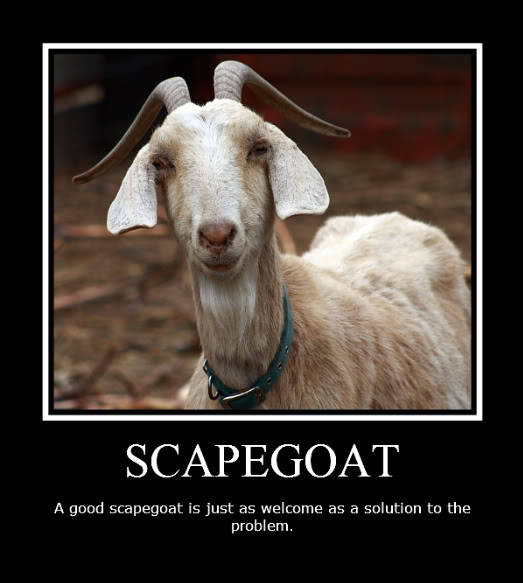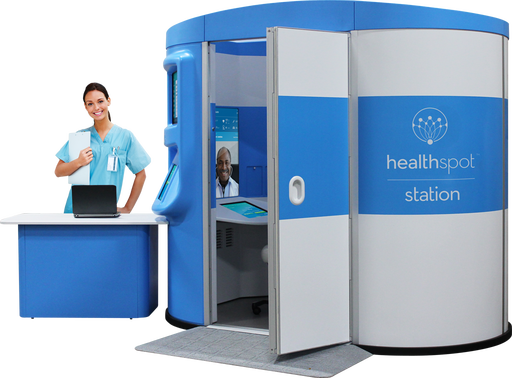And Our Greatest Enemy Is…Facing Back at Us in the Mirror
Originally posted at HHTM On January 13, 2015. Reprinted with permission.
I read the 4-week Perfect Storm Series, by Jerry Northern, that ran this past fall at Hearing Views, with great interest. Ultimately, Dr. Northern’s analysis into many of the ills that plague our profession today should resonate with most audiologists–especially those in private practice.
Apathy, without a doubt, has been our greatest enemy for far too long.
Cheaper Unit Cost Alone Will Not Save Independent Audiology
Except for maybe the manufacturers, I don’t think anyone can argue against lower-priced hearing aids being a positive development and beneficial to many in private practice.[1] Like the unexpected drop in gasoline prices stimulating the national economy, this could certainly help the bottom line for many. However, is this not a temporary solution?
Do we genuinely believe that cheaper pricing alone will be the savior of independent practices and put the Big Box stores out of business?[2]
Really think about that one for a moment.
Time to Focus on the Future
It seems to me that too much of our time is spent arguing about who’s right: ASHA, AAA or ADA. As a result, people who may be in the middle wind up getting completely turned off to the process.
We plateau, rather than progress.
While political issues, such as achieving greater autonomy, are critical to the profession in the long term, I think we need to begin placing more focus on how to prepare for our future within our present reality: What do we bring to the table that is unique and less likely to be commoditized?
“…unfortunately, to the general public, there is little apparent difference between the various types of providers and their wares – so it often comes down to a comparison of costs.” –Jerry Northern, PhD
It may be a hard pill to swallow, but after all the years of opportunity to showcase the unique value that audiologists bring to the realm of hearing healthcare, the general public still doesn’t distinguish between hearing care providers.
A Future Without Hearing Aids?
Yes, the thought of a future in Audiology without hearing aids seems implausible. So many of us today live and breathe hearing aids on a day-to-day basis–it’s what we know! It’s very easy to get caught up in a world of the latest and greatest features, iPhone Apps, etc., and then promote these wonderful innovations to our patients.
The future of audiology lies in the prevention, diagnosis, management, and treatment of hearing and balance disorders; a fully-rounded healthcare profession. Audiology is not, and cannot afford to be, a one-trick pony.
It’s time we began focusing less on hearing aids in our marketing and outreach to potential patients. While hearing aids will continue to play a role in our professional lives, the future of audiology is NOT in hearing aids.

It’s easy to blame large retail chains for a litany of issues the profession is facing today. It’s much harder to look in the mirror.
It’s easy to blame large retail chains for a litany of issues the profession is facing today. It’s much harder to look in the mirror.
Just as Optometrists didn’t give up glasses and contact lenses 20 years ago when the retail chains began to seriously disrupt the status quo, we won’t give up hearing aids. They’ll still be around,[3] but basic economics will likely force us to finally get outside the traditional bundled-service hearing aid delivery model.
We’ve reached a tipping point. Overall average retail costs for hearing aids are likely going down, while wholesale prices (to independent practices) are likely to keep going up. Meanwhile, consumers are continuing not only to demand lower prices, but they are simultaneously demanding MORE services to go along with it.
If you aren’t unbundling in your clinic now, you won’t have a choice in the future–unless, perhaps, you like to work for free.
Preparing for a Brave New World
“Find the niche you can scratch!” is a piece of advice every practicing audiologist should remember. You can’t just be another hearing aid office–you must find a niche in which you can serve and excel. We need look not only to our roots, but also to our future.
Since we can’t count on hearing aids alone to sustain our practices in the future, it’s time to unequivocally own hearing loss prevention, tinnitus treatment and vestibular evaluation/management, etc.
With the advent of the AuD as the standard in Audiology, isn’t it time that we stopped being our patients’ “Hearing Aid Guy” or “Gal”? Do you call your dentist “My Tooth Guy?” or your Optometrist the “Eye Lady”? Maybe some of you do….but, my guess is no.
If we believe Audiologists are overdue in finally being recognized as Limited License Physicians(LLP),[4]we must [re]brand the profession accordingly. We must also educate accordingly: by operating under the assumption that all future AuDs will have greater autonomy and responsibility in patient care (i.e., LLP status).
ENT physicians, like hearing aid dispensers, are our colleagues, not our enemies. Our future is with them, not opposed to them. We each bring a unique skill set to the table to help our patients.
I recently spoke with a prominent ENT physician who said there is “no reason” Audiologists shouldn’t have prescriptive rights, but that our profession needs to make a few relatively small changes in our educational process so that our profession and the greater medical community are “speaking the same language.”
We should be embracing the medical community and building alliances, not burning bridges.

MicroClinic: The next evolution in hearing healthcare? Coming to a mall or pharmacy near you! Image of HealthSpot booth.
The Future Is Only Scary if We Make It So…
The future is rife with risks and potential threats to the long-term viability of audiology. However, the future also holds tremendous opportunity for positive change.
Audiologists need to begin the debate today as to what the appropriate rules should be for emerging technologies, such as tele-audiology. What can you or can’t you perform “virtually” and what services are allowed reimbursement and by whom?
If we don’t seriously consider the long-term implications of this (and other) technology, and its uses, it could easily be co-opted by larger corporate interests that may or may not be friendly to us.
Time to Put Down the Kool-Aid
 Don’t fool yourselves: Costco and the Big Box stores aren’t going anywhere.[5] They make for an easy scapegoat, but they certainly aren’t the reason audiology finds itself in its present state. It’s time to move forward.
Don’t fool yourselves: Costco and the Big Box stores aren’t going anywhere.[5] They make for an easy scapegoat, but they certainly aren’t the reason audiology finds itself in its present state. It’s time to move forward.
Lower unit price alone is not going to save audiology.
Other major players will, no doubt, join in the fray and continue to disrupt the comfortable existence we’ve been able to maintain for such a long time while other industries/professions have experienced their share of major disruptions.
As Brian Taylor pointed out back in 2012, “The Era of Low-Hanging Fruit is Over“. In 2015, I propose we stop looking back with nostalgia at how we think “it should be” and instead focus on the real issues facing us today and in the future. We have no other option but to embrace our new reality and continue to find ways we can thrive within it.
Michael Collins, AuD is an audiologist with experience in private practice and within industry working for a major hearing aid manufacturer. Dr. Collins believes that independent hearing care practitioners can and will continue to thrive in the future, but only if they shift their focus away from technology alone, and instead commit to best practices and greater personalization of the patient experience.
Footnotes
- not to mention, many patients as well!
- I don’t want to discount the efforts to unify the profession, which are truly laudable, but we need to be realistic that this is not the one and only solution to all of our ills. The issues plaguing the profession go far beyond something as simple as high-priced hearing aids
- We can certainly take some lessons from our Optometry colleagues on a number of issues, not the least of which is insurance coverage. Studies over the years have indicated a much higher likelihood to purchase hearing aids if there was at least somecoverage provided. Yet, in hearing healthcare, we often see companies droppinginsurance coverage for aids rather than adding it. It may be time audiologists rallied behind the idea that hearing aids should be included among the essential health benefitsin all 50 states
- as now even AAA explicitly supports
- As a matter of fact, one could make a very good argument that this alternate model deserves some credit for increasing hearing aid adoption among a cohort of people that would normally never consider casting their shadow within 100 feet of a traditional audiology or hearing aid clinic. Food for thought!

